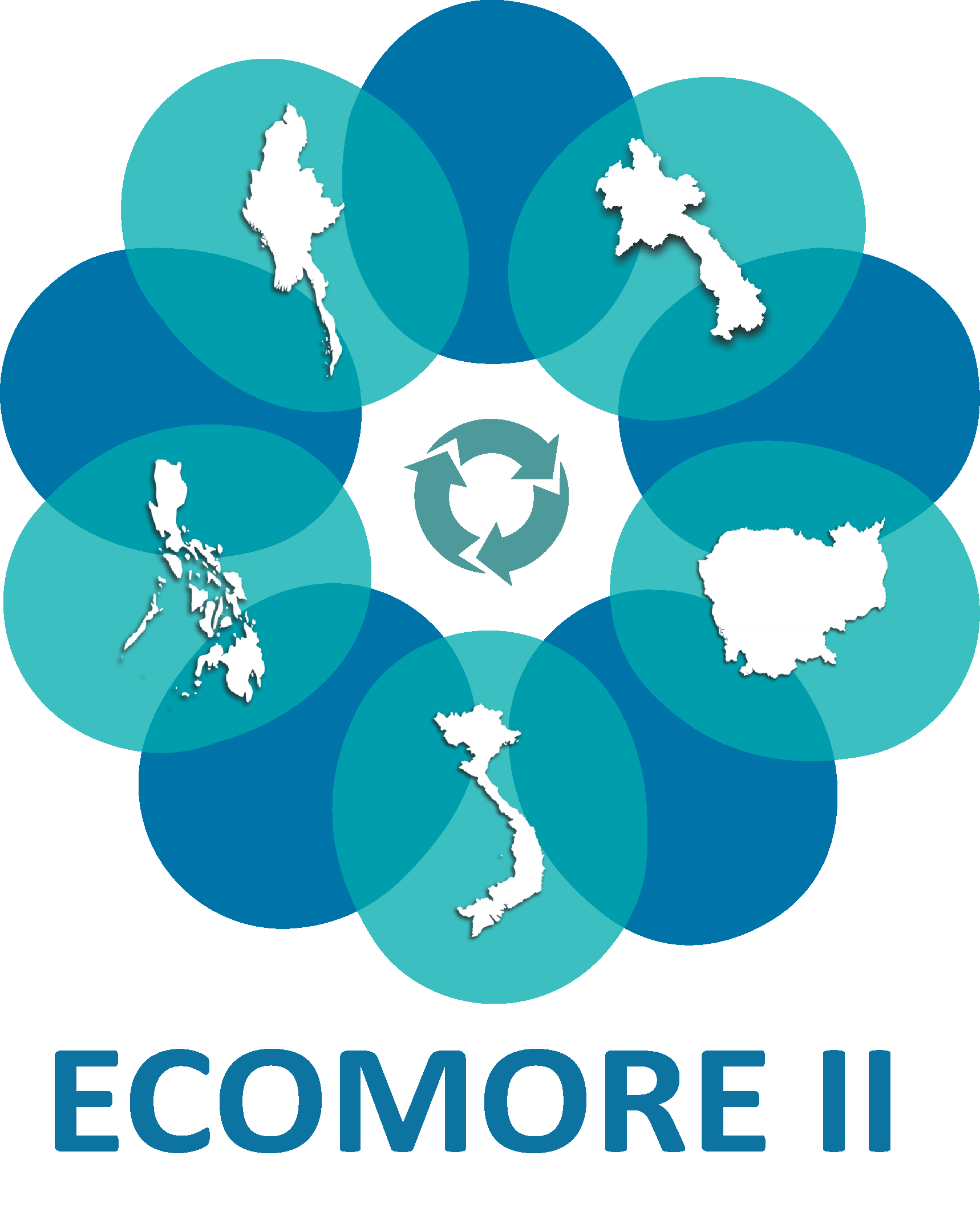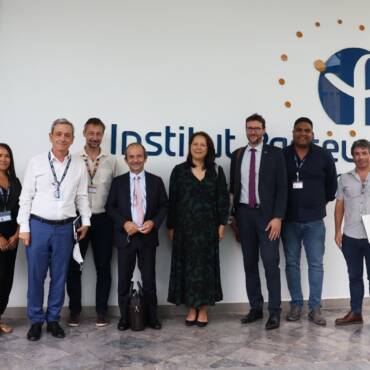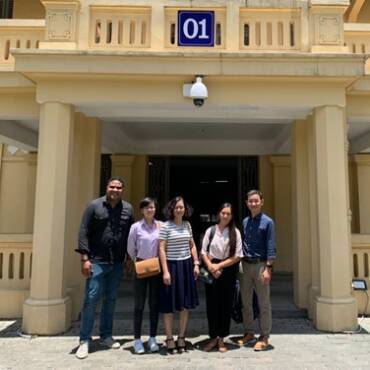On February 9, 2023, the National Restitution Meeting of the ECOMORE 2 project was held in Kampong Cham, Cambodia. The objective was to remind to all involved parties the approaches used and to share the results and outcomes of the project as well as tangible recommendations to actors in the field. Representatives of the Cambodian Ministry of Health (MoH), the Ministry of Education Youth and Sport (MoEYS), the National Center for Parasitology, Entomology and Malaria Control (CNM), the Provincial Health Department (PHD), Public Schools (PS), the French Embassy in Cambodia (FEC), and the Agence Française pour le Développement (AFD) attended this stakeholders meeting. As a One Health project that focuses on animal, environmental and human health, all the results studied during Ecomore 2 to better understand the seroprevalence and circulation of dengue were presented.
Sony Yean, a PhD student in the Medical and Veterinary Entomology Unit, presented the entomological approaches: communication and knowledge of students and teachers, destruction of breeding grounds, use of the larvicide Bti, and installation of self-disseminating traps. The implementation of the study resulted in the reduction of the relative density of the main dengue vector, the Aedes mosquito, the evaluation of Bti as a serious alternative insecticide against the dengue vector in schools, and the detection of toilets as the main breeding sites.
Professor Sowath Ly, Deputy Director of the Institut Pasteur du Cambodge and Head of the Public Health Group, then presented how virological and epidemiological approaches in human populations have led to serological surveillance of dengue through saliva testing and active surveillance of dengue-like illness in communities. After four years of monitoring, the researchers concluded that the school-based intervention did not appear to reduce dengue transmission among children in the community. Being close to the Mekong River and being between 5 and 10 years of age significantly increased the likelihood of developing dengue-like illness (DLI) and dengue fever respectively, and finally, that there were more secondary dengue infections than primary infections in the active DLI surveillance.
Finally the climatic results were also described by Sokeang Hoeung, a geomathematician in the Geohealth group. Using weather and landscape analysis, they found that the distribution and diversity of mosquito species was related to environmental data such as vegetation and humidity. Furthermore, it appeared that locally, species disparity was not related to weather but rather to environments. New modelling approaches, based on satellite observation, made it possible to model all the species captured and to obtain environmental data on little-studied species. The climate platform established in the framework of ECOMORE 2, which links future climate scenarios to associated risks (mosquito density, leptospirosis distribution) was also presented.
Following these presentations, Sébastien Boyer, Head of the Medical and Veterinary Entomology Unit, made the following recommendations
– to fight dengue, more efforts should be made in preventive and integrative measures at the household level, in the first place, but also at multiple levels (individual, community).
– to consider the aspect of insecticide resistance in larvae and mosquitoes
– to raise awareness in schools of the role of plastic waste as a reservoir and breeding ground, hence the importance of destroying it and installing closed taps and cisterns.
The main topics discussed in the stakeholder exchange sessions were the removal of breeding grounds in school toilets and small plastic containers, as well as the perception of dengue transmission and saliva sampling by participating schools and students. Public school headmasters reaffirmed their commitment to destroying and limiting breeding sites (promoting reusable water bottles, installing taps, storing sealed water, educating children about plastic pollution), but despite their best efforts, excessive plastic pollution still occurs around the school, highlighting the importance of community involvement. The directors of the health centres in Kampong Cham also shared their thoughts on the limitations of their structures, as health centres are generally not equipped with a biological laboratory, which compromises the confirmation of a complete diagnosis in case of dengue symptoms. This round table discussion allowed stakeholders from all areas involved to discuss the benefits they have observed from the ECOMORE 2 project, and the problems they still face, which was undoubtedly instructive for the implementation of sustainable dengue prevention and control in Cambodia.
To conclude all the stakeholders reminded the importance of ECOMORE project such as, Mr. Sam Bunleng, Head of Dengue Surveillance Unit of the CNM, who expressed his satisfaction concerning his center’s partnership with IPC and emphasized on the opportunity that ECOMORE represents to all of the participating institutions for the establishment of a more effective prevention and response measures that will contribute to the reduction of dengue morbidity and mortality. Malika Ok, Program Officer at the AFD Cambodia Office express, on behalf of AFD, her satisfaction about the program’s results despite the challenges raised during the pandemic. She reaffirmed that ECOMORE 2 is a AFD flagship regional project in the health sector, fully contributing to the group’s commitment on Climate Change, with a One Health approach.



Add Comment